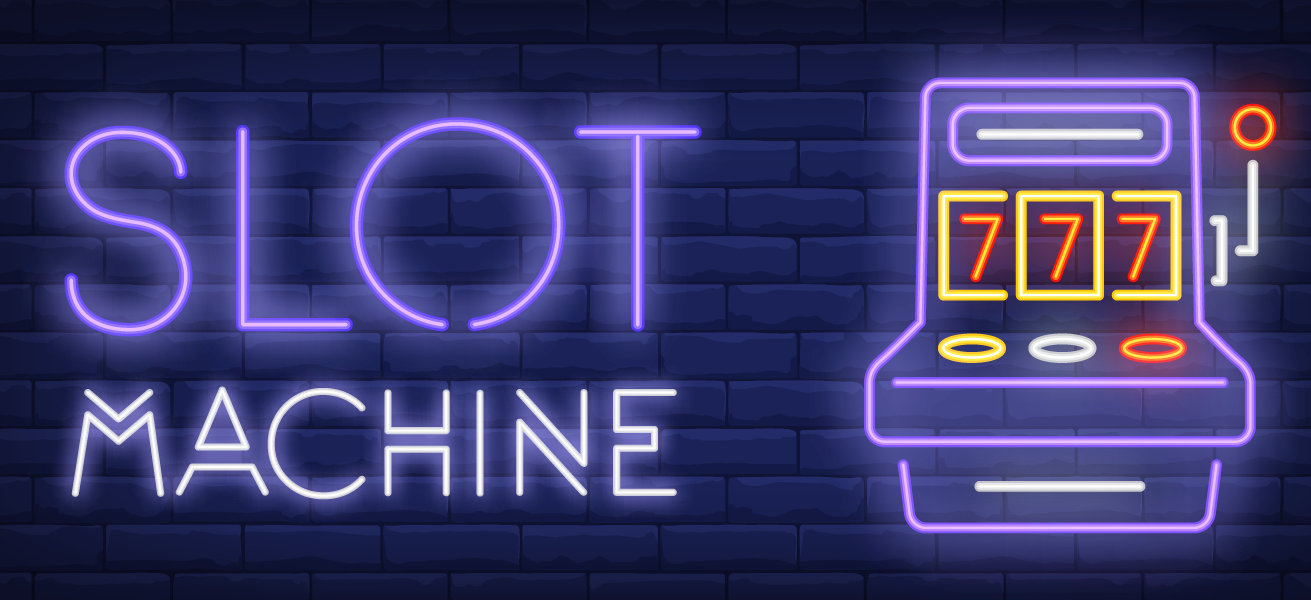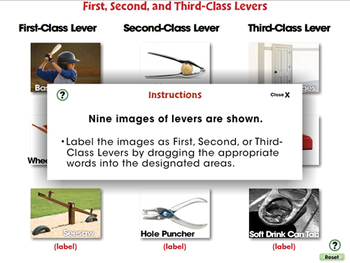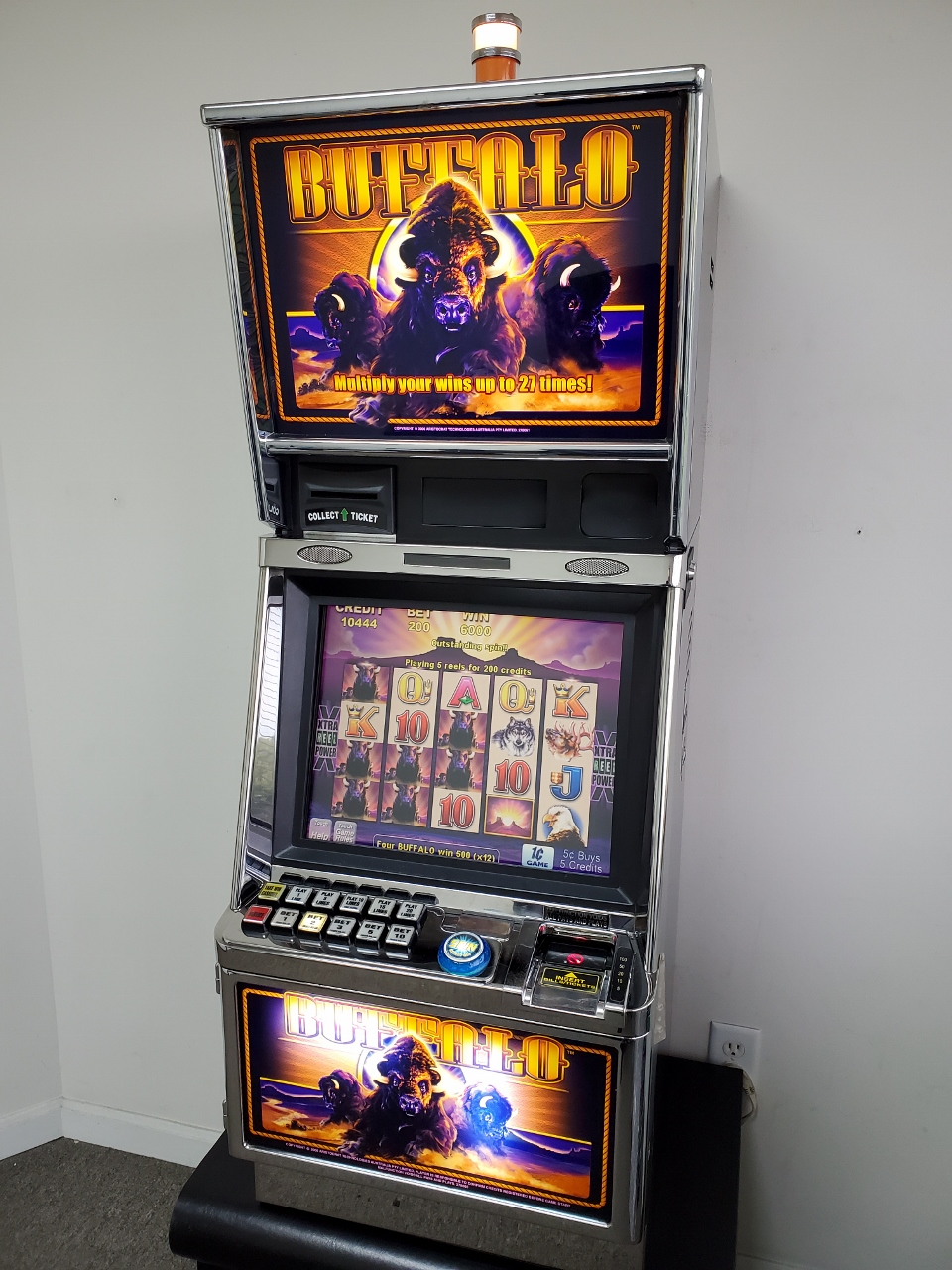Now that is the biggest difference between Class II and Class III slot machines. Let us discuss Class II slots first; in this case you are playing against other players like you but the set of prizes are quite limited. This type of slots basically mimic the real game of Bingo. Class III: a catch-all category of games that can’t be considered Class I or II, like slots, roulette, blackjack, etc. Knowing the hurdles Native American casinos faced to allow Class III slots, gaming companies began developing Class II gaming machines: games that play like regular slots but are technically fancy versions of bingo.

- Please define the difference between Class II and Class III Video Poker machines. Thanx, Larry Cosner Dear Larry, There is a lot of confusion surrounding the differences between Class II and Class III video poker games. Class III games are what you usually find in Las Vegas.
- 'Class III' (or 'traditional') slot machines operate independently from a centralized computer system and a player's chance of winning any payout is the same with every play. Class III slot machines are most often seen in Nevada or Atlantic City and are sometimes referred to as 'Vegas-style slots'.
Understanding the differences between these two types of games
By Henry Tamburin
I’ve received a lot of questions about video poker machines in casinos on Native American reservations. To get the answers on how these machines work, I interviewed Jim Coleman, Senior Product Manager at IGT (a company that manufactures the majority of video poker machines for Class III casinos).
Before I begin, let me give you a brief history lesson on how Class I, II, and III gaming came about. The federal Indian Gaming Regulatory Act established the three classes in 1988, which defined what Indian tribes in a given jurisdiction can and can’t offer in their casinos. “Class I gaming” is defined as “traditional Indian gaming and social gaming for minimal prizes.” Since Class I doesn’t involve commercial gambling, I’ll ignore it for this article. “Class II gaming” means the game of chance commonly known as bingo, whether or not electronic, computer, or other technologic aids are used in connection therewith, including, if played in the same location, pull-tabs, lotto, punch boards, tip jars and other games similar to bingo, as well as various non-house-banked card games (but for this article, we’ll ignore these other types).
Difference Between Class 2 And Class 3 Slot Machines Videos
“Class III gaming” is full-scale gambling (e.g., Las Vegas or Atlantic City), including table games (blackjack, craps, etc.), slots, and video poker. Tribes must negotiate compacts with the states to conduct Class III gaming; otherwise, they are limited to Class II gaming, providing bingo is offered in other forms or venues in that state.
The following table summarizes the major differences between a Class II and Class III video poker machine. I’ll explain the information in each row in more detail so you can fully understand the differences.
| Class II | Class III | |
| How the final outcome is determined | Result of a winning pattern from an electronic bingo game | Result of a random selection of cards by a random number generator |
| How the odds are determined | Odds of hitting a certain pattern on a bingo card | Odds of randomly drawing cards from a 52-card deck |
| Does playing strategy matter? | No. Results are predetermined by the pattern of the bingo game. Nothing the player does on the draw will change the outcome. | Playing strategy can influence the final outcome. Players can achieve theoretical returns for any game by playing their hands perfectly. |
| Can a player determine the Expected Return of the game from the paytable? | No. | Yes. |
| How do you know the machine is Class II or III | Look for the small display of a bingo card on the machine | If you don’t see a bingo card, it’s probably Class III |
How the Outcome is Determined
A Class III video poker machine has a Random Number Generator (RNG) software program that randomly selects cards from a virtual 52-card deck (assuming no wild cards). When you press the deal button, the RNG selects five cards at random, which is the initial five cards that you see on your screen. The RNG continues to shuffle the remaining 47-card deck until you decide which cards you want to hold. When you hit the draw button, the shuffling stops and the replacement cards are selected from the top of the shuffled 47 cards. By law, each card has to have the same probability of being selected on the deal and draw; therefore, the probability of selecting any card is the same as it would be if you randomly drew cards from a freshly shuffled deck of cards. The probability of getting a winning hand by this random selection process is well known (e.g., the probability of getting a royal flush is roughly once in 40,000 hands).

A video poker hand in a Class II video poker machine is not the result of an RNG outcome at the terminal level. Instead, the machine is connected to a central computer server whose function is to draw bingo balls (randomly as with an RNG.) The result of the bingo game is a “game-ending pattern.” This is a pattern of numbers on a bingo card, such as five-in-row, four corners, round robin, etc., that ends the bingo game with a winning result and a prize. There is a specific timeframe (e.g., 20 milliseconds) in which a player who hits the start button on a bingo machine with a poker entertaining display (i.e., the deal button on his video poker machine) is entered into an electronic bingo game for that common ball draw. Each player has their own bingo card, which they can see on the interface of their player terminal (see photo of display below). The player that has the winning bingo pattern will win a monetary prize.
In addition, other patterns may award interim prizes for the corresponding bingo patterns. For example, the game of Jacks or Better has nine winning patterns (corresponding to the nine winning hands in Jacks or Better). If the winning bingo pattern results in a prize for the bingo game of, say 10 credits, then the player will end up with a poker hand that is presented as two pair on the entertaining display (which is the payout for two pair with max credits wagered).
A key point: Class II player terminals using a video poker entertaining display must involve player participation in an electronic bingo game. Therefore, you must be playing bingo against one (or more) players. You could be playing against other players playing on a video poker entertaining display or even other terminals with varying entertaining displays such as spinning reels (i.e., slot machine).
It really doesn’t matter what the player interface terminal is that will display the results of a bingo game (for video poker, it’s cards on a screen; for other entertaining displays, such as a slot machine, it’s spinning reels). If you happen to be the only player in a location, you can’t play (if you try, a message will appear on your screen, stating “waiting for more players”). However, in some gaming jurisdictions, Class II machines in one location could be linked to another Class II bingo server in another location, so it’s possible you could be playing a game of bingo against a player in a different location using a common ball draw.

Odds
In a Class II terminal using a video poker player interface, the odds of getting a winning hand are determined by the odds of the bingo pattern. Mathematicians at IGT can calculate the odds for millions of different bingo patterns on a bingo card. Therefore, theoretically, they can choose a bingo pattern that mimics the odds of getting any winning hand from a RNG in a Class III machine.
For a Class III video poker machine, the odds of selecting the winning hands from a 52-card deck can be accurately calculated. If you multiply the odds times the payout for each winning hand and sum the results, you can compute the Expected Return (ER) for the game. The ER for different video poker games and pay tables is readily available.
Playing Strategy
If you are playing a video poker machine where the cards are randomly selected by the RNG (e.g., Class III), the skill of the player can influence the outcome.
In a Class II terminal using a video poker interface, playing skill is futile because the result of your hand is already predetermined by the pattern of the winning bingo game. Therefore, deciding what cards to hold prior to hitting the draw button does nothing to improve your chances of winning. For the game of bingo, the result of the bingo game is a certain prize (i.e., payout), and you must get that prize in your video poker entertaining display outcome even if you make a “bonehead play.” For example, suppose you are dealt the following hand:
Let’s say the result of the bingo pattern is a prize of 4000 credits, which translates to a typical royal flush in video poker. However, on the draw, if you decide (knowingly or unknowingly) to hold all the cards instead of going for the royal flush, fear not. A genie will appear on the IGT entertaining display and change the 9 of spades to a 10 of clubs, giving you a royal flush hand and corresponding 4000-coin payout. (The latter payout was determined as the winning outcome of the bingo game.)
Some folks might think the “Genie” feature on Class II video poker machines is good for novice players because it will correct a playing mistake and show them the optimum strategy (i.e., the winning hand created by the “Genie”). Personally, I think this is an expensive way to learn the playing strategy for a video poker game. (It’s better to learn the playing strategy at home on your computer using video poker training software, and then bring a strategy card with you when you play a Class III version.)
Expected Return
Players can look at the Pay Table for any Class III video poker game and know what the ER is for the game (there is plenty of information available that lists the ER for different video poker games). However, on a Class II machine, you have no idea what the ER is for the game (that’s because the results are predetermined based on the game of bingo).
In addition, keep this point in mind. In many states, traditional casinos must report their return percentages to state gaming agencies and this information is often reported to the public. Since Native American tribes are a sovereign nation, their casinos are not subject to state regulation or public reporting of the return percentages on their machines.
Is it a Class II or III Machine?
You’ll know if the video poker machine you are about to play is a Class II machine if you see a display of a bingo card (such as the one below) on your video poker machine.
The Bottom Line
Class II video poker machines are bingo games that give players an entertaining display of video poker that they can relate to. There is no skill involved in playing them and the return on the game is unknown to players. Play these machines for entertainment. Class III video poker machines are a skill-based casino game where the skill of the player can influence the outcome. With a Class III video poker machine, it’s relatively easy to determine the ER of the game.
Acknowledgement: I want to thank Jim Coleman from IGT for the time he spent on several phone conferences with me, and the face-to-face discussion we had at the Global Gaming Expo in Las Vegas, explaining how Class II video poker machines work.
————————————————————————————————————-
Henry Tamburin is a blackjack and video poker expert. He is the host of the smartgaming.com website and the editor of the Blackjack Insider newsletter (for a free three-month subscription, visit www.bjinsider.com/free). For a free copy of his Casino Gambling Catalog, which contains books, strategy cards, and software for video poker players, call toll free 1-888-353-3234, or visit the web store at smartgaming.com.
When playing slot machines it’s not unusual to notice streaks of wins or losses. Many gamblers will refer to the slot as hot or going through a hot cycle when it’s paying, or a cold cycle when it’s not.
But Do Slot Machines Really Have Hot or Cold Cycles?
Slot machines only have hot or cold cycles in that sometimes there will be noticeable strings of good or bad luck resulting in wins or losses.
The problem is that many slot players will declare their machine on a hot or cold cycle (based on how they’ve done) and then decide whether to continue playing based on that belief.
That’s a big mistake.
As explained in our How Slots Work article, every spin of a slot machine is a random, independent event. Slots have no memory of past wins when determining the result of the next spin. Win or lose cycles aren’t programmed into slot machines.
How Can a Slot Feel “Hot” or “Cold” if Every Spin is Actually Random?
Because random data can still have trends. If you flip a coin 1,000 times and record the results, you’ll likely find groupings of several heads or tails in a row. Just because an event is random doesn’t mean it won’t have repeated or grouped results. In fact, flipping a coin and expecting it to alternate perfectly wouldn’t be random at all.
Plus the human brain is exceptional at spotting patterns (even when they don’t exist), and that leads to people thinking slot machines have hot or cold cycles. This is known as the clustering illusion.
The Bottom Line on Slot Machine Cycles
Slot machines only have cycles if you look back and declare a string of wins or losses to be a cycle. The terminology is misleading though because it leads slot players to believe they can predict future outcome based on past results, which is impossible with random data like slot machine spins.
Difference Between Class 2 And Class 3 Slot Machines Reviews
Slot machines aren’t programmed to be hot or cold – all that matters is that they meet the programmed payout percentage over their lifetime (many millions of spins, many more than any one person could play). It’s inevitable that some players will experience seemingly impossible luck with a slot machine, but attempting to predict the slot’s random number generator results based on prior wins or losses is not a wise bet.
Difference Between Class 2 And Class 3 Slot Machines Free
Further Reading
